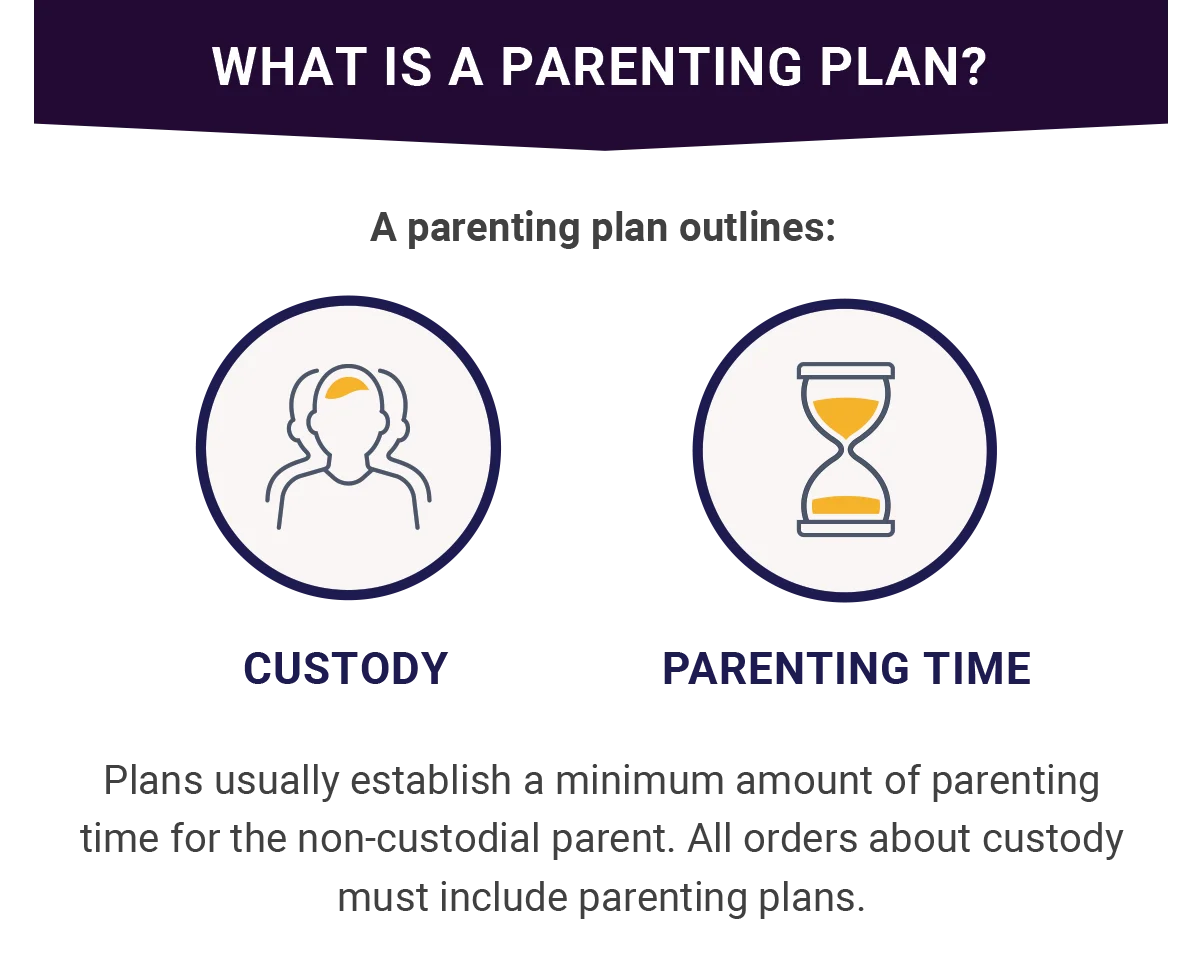Portland Divorce Attorney
Oregon Divorce Attorneys Offer Clients Comprehensive Representation Throughout All Aspects of Divorce, Custody, and Family Law
Every Divorce Lawyer Knows Every Case is Different
WE UNDERSTAND THAT ENDING A MARRIAGE IS NEVER EASY
Even when both spouses can agree that divorce is the best option, it can still be an emotional process. And at its worst, the emotions that splitting up causes can turn every issue into a disagreement, even those in which it seemed there would be a mutual understanding and agreement. At the Portland divorce and family law firm of Gearing Rackner & McGrath, LLP, we represent clients going through the difficult process of divorce. Having been serving clients across Oregon and Washington for several decades, our attorneys understand that clients often need more than just an attorney.
Zealous Advocates. Supportive Professionals.
Over the years, we have discovered that one of the most critical aspects of our job is to listen. Each of our clients is unique, as are their marriages, and only by taking the time to get to know you can we provide you with the representation that you need. At Gearing Rackner & McGrath, our team of experienced divorce attorneys works with clients early on in the divorce process to ensure that their rights are protected.
We also handle legal issues related to divorce, including child custody and child support matters. With our assistance, you can be sure that you will not only have a zealous advocate who will look out for your rights, but also a network of supporting professionals who can offer you expert guidance along the way.
Divorce in Oregon and Washington

In Portland, as well as throughout the state of Oregon and Washington, the legal process of divorce is referred to as the “dissolution of marriage.” Both states are “no-fault” states, meaning that neither party needs to show that the other was at fault for the deterioration of the marriage. However, the actual termination of a legal marriage is the final step in a series of other issues that our divorce lawyers and your family must resolve during the process. While many decisions must be made throughout the course of a divorce proceeding, judges presiding over a divorce must primarily make the following determinations:
• Division of property
• Child custody
• Child support
• Spousal support
Each of these issues can affect the lives of the parties for a long time to come. However, just because a marriage is ending does not mean that there cannot be agreement on some issues. In many cases, the best results for our clients have come through skillful negotiation rather than ardent litigation. Unfortunately, a collaborative approach is not always possible or practical.
The Divorce Process in Oregon
The process of going through a Portland divorce can feel overwhelming. You may have heard stories about friends or colleagues going through lengthy, drawn-out proceedings and fear that is what is in store for you. However, this often involves a situation where the two spouses cannot agree on much of anything; when a couple can agree to at least a few basic things, the process is much smoother.
No-Fault Divorce
The first thing to know about getting a divorce in Portland is that Oregon is a no-fault state. This means that you do not need to cite the specific grounds for a divorce and only need to explain that you and your spouse have "irreconcilable differences." Along those lines, you do not need your spouse's consent to file for divorce in Oregon.
The next step to filing a divorce is to check that you or your spouse meet the residency requirements to file for divorce in Oregon. Under state law, the courts will only hear a divorce proceeding if you or your spouse has lived in the state for the six-month period leading up to the divorce. Alternatively, you can also meet the residency requirement if you were married in Oregon and you or your spouse currently live in the state. Thus, if you were married in Oregon and you still live here, it does not matter how long you have resided in the state.
Do We File for a Summary Dissolution?
Once you determine that you meet the residency requirement, the next step is to consider whether you will file for a summary dissolution. A summary dissolution is a simplified divorce process for those who meet certain requirements. For example, the following are a few of the requirements to obtain a summary dissolution:
You have been married for less than ten years
You do not have minor children or an adult child attending school
Neither spouse owns any real estate
Your collective assets do not exceed $30,000 in value
Your collective debt does not exceed $15,000
Neither spouse is requesting spousal support
You and your spouse agree on how to divide your debt and assets
What Type of Divorce is Right for Me?
Of course, a summary dissolution is not appropriate for many couples. However, that does not mean that a divorce has to be exceedingly complex.
If you and your spouse cannot agree on certain elements of the divorce, or you otherwise do not qualify for a summary dissolution, you have three options that do not involve having a court intervention:
• Mediation – You, your spouse and your respective attorneys meet with a neutral third-party mediator who helps you work through the issues that must be decided.
• Arbitration – With your respective attorneys, you and your spouse present your case to a neutral third-party decision-maker, who will resolve all of the disputes between the parties.
• Direct Negotiation – In some instances, spouses may be able to communicate together effectively to reach a resolution. In those circumstances, an attorney can still be helpful to finalize paperwork or provide advice.
• Collaboration – With the assistance of your attorneys, you and your spouse work through the issues to come to your own solution, often with the assistance of other professionals, such as accountants and child specialists.
If neither of these three options helps you and your spouse agree, you will need to file a petition for dissolution of marriage with an Oregon court. If the only contested issues in your case are property and debt, the Court may refer you to Arbitration first. In arbitration, with your respective attorneys, you and your spouse present your case to a neutral third-party decision-maker, who will resolve all of the disputes between the parties. The court will then resolve all contested issues, some of which may include:
• Child support
• Child custody and visitation (parenting plans)
• Spousal support
• Division of property
The amount of time it takes to get a divorce in Oregon varies widely, depending on several factors. For example, in general, divorces involving a significant amount of assets and many contested issues take longer.
PRACTICE AREAS
The division of property is one of the most contentious issues in any divorce proceeding.
Oregon and Washington use different methods when it comes to dividing assets during a divorce. Oregon is an equitable distribution state, meaning that courts will distribute assets to each spouse based on what is fair, but not necessarily equal. On the other hand, Washington is a community property state. Thus, Washington judges typically divide assets evenly between the parties.
In most states, before a judge gets to dividing a couple’s assets, the court must first determine which of the couple’s assets are marital assets or community property. Oregon, however, is different in that assets that were obtained by a spouse before the marriage may be subject to equitable distribution.
Another unique aspect of Oregon divorce law is that there is not a statutorily defined list of factors that a judge must consider when dividing property. By statute, courts must only consider the contributions of the spouses, including any contributions as a homemaker. Beyond that, the courts have broad discretion when conducting the equitable distribution analysis.
Division of Property in Oregon Divorces

Notably, there is a presumption that each spouse contributed equally to any assets that were acquired during marriage, including appreciation on premarital assets. That presumption can only be rebutted by persuasive evidence that one spouse contributed much more than the other.
Child Custody in Portland Oregon Divorces
Perhaps no other issue is more difficult for spouses going through a divorce than that of child custody. While Oregon does allow for joint custody of children after a divorce, a court will only order joint custody of a child when both parties agree to the arrangement. When the parties do not agree, courts will award one parent primary custody and the other parent will spend “parenting time” as described in an Oregon parenting plan. When making custody determinations, Oregon courts are guided by what is in the best interest of the child. Under state law, courts must consider the following factors when deciding which parent will have custody of a child:
The child’s relationship with other family members
The parties' interest in the child
The parties' attitude toward the child
The benefit of a continued relationship with each party
Whether either party engaged in any abuse of the child or the other parent
The child’s preference (with more weight afforded to older children)
The willingness of each parent to foster a close and continuing relationship between the child and the other parent

Parenting Plans in a Portland Divorce
Once the court determines which parent will have primary custody, the court will then order visitation pursuant to an Oregon parenting plan. A parenting plan is a legal document that details the amount of time a child spends with each parent and the rules for the same. A parenting plan may be the product of a mutual agreement between parents or, if the parents cannot agree, the court will create a parenting plan.
Courts prefer that parents try to come up with a workable parenting plan on their own, through each person's divorce lawyers, often through mediation. However, if the parties cannot reach an agreement on their own, a court-ordered parenting plan will be required.
How Courts Decide Oregon Child Support Issues
Child support refers to payments made by a non-custodial parent to the custodial parent for the care, support, education and welfare of a child. In Oregon, after a divorce, both parents have a legal responsibility to provide for their children. During the divorce proceeding, the court will typically award primary physical custody to one parent, who is referred to as the custodial parent. The custodial parent will usually (but not always) receive child support payments from the non-custodial parent.
Unlike the decision of how to divide a couple’s assets, courts use a formula when determining if child support is appropriate. The formula considers the following major factors:
• Each parents’ gross income from all sources,
• The amount of time the children spend with each parent,
• Child care costs,
• The cost of medical insurance, and
• Ongoing medical expenses not covered by insurance.
Once a judge makes a child support decision, that decision is final. However, either spouse can petition the court for an Oregon child support modification by showing that there has been a change in circumstances since the original order.
Learn more with our Oregon Child Custody infographic.
Pre and Post-Marital Agreements
While going through a divorce is always a challenging time, having certain documents in place can make the process quite a bit easier. Prenuptial and postnuptial agreements are contracts that lay out each spouse's rights and responsibilities in the event of a divorce. A prenuptial agreement, or premarital contract, is created before a couple marries, whereas a postnuptial agreement is entered into after the couple is married. Postnuptial agreements may require specific items of consideration in order to be enforceable, but other than this difference, the two agreements are similar.
Couples can cover a range of matters in prenuptial agreements, including:
The division of separate property
The division of marital property
Each spouse's ability to buy, sell or take a loan out on a property
The division of debt
The ownership of business interests
Whether either spouse has a right to the other's inheritance
Whether spousal support will be awarded and, if so, in what amount and for how long
Whether either spouse will be entitled to death benefits from the other spouse's life insurance policy
Any other issue that the couple believes to be important
However, couples cannot include terms outlining their agreement as to any matters involving child custody and child support. That is because the receipt of child support is a right that belongs to a child (not the receiving parent), and courts must make child-custody determinations after considering what is in the child's best interests. Of course, if the couple does not dispute these issues, it will make the process easier, but the court is not bound to accept a couple's agreement.
Spousal Support in Portland Oregon
Formerly called “alimony,” spousal support or spousal maintenance refers to regular payments made from one spouse to the other after a divorce is final. Spouses can agree on whether spousal support is necessary, as well as the amount. However, if the parties are unable to agree, a court can order spousal support on its own. When determining whether spousal support is appropriate, courts consider the following:
The length of the marriage
The requesting spouse’s training, employment skills, and work experience
The tax ramifications spousal support may have on each spouse
The financial needs and resources of each spouse
Whether either spouse has custody of a child or pays child support
Any other factors that are appropriate as deemed by the court
Modifying a Divorce Judge's Order
After a divorce, either party may ask the court to modify a previous order. While, generally, issues involving the distribution of property are not modifiable, courts retain the authority to change other aspects of a divorce order. The most common modification requests pertain to the following:
• Modification of a child support award
• Modification of a parenting plan
• Modification of a child custody determination
• Modification of an award for spousal support
Generally, to obtain a modification, the requesting party must show that there was a substantial change in circumstances since the court made its previous decision. For example, depending on the situation, the following may be the basis for a modification order:
• One spouse becomes abusive or is convicted of a crime;
• One spouse loses a job or otherwise experiences financial hardship;
• One spouse moves or expresses a desire to move in the future;
• One spouse remarries;
• As the teenager gets older, their preferences change;
• One spouse begins suffering from drug or alcohol addiction;
• One spouse's inability to effectively parent; and
• One spouse becomes ill or suffers a disability.
A judge is not bound to accept an agreement relating to child support, child custody or parenting time if the judge determines that the agreement is contrary to public policy, the law or the child's best interests. However, if the parties can agree to a modification, the judge will accept the agreement.
If one spouse does not agree to a modification, the court will hold a hearing that will resemble the initial divorce proceedings. During the hearing, the court will hear from both sides before rendering a decision.
Oregon Divorce Frequently Asked Questions
Schedule a Consultation with a Portland Divorce Attorney
If you are considering filing for divorce or believe that your spouse is contemplating a divorce, contact one of the dedicated divorce and family law attorneys at Gearing, Rackner & McGrath, LLP. As committed divorce lawyers, we have extensive experience handling divorce cases as well as the related issues that frequently come up when going through a divorce, including child custody and child support. To learn more about how our award-winning attorneys can help you, call us at 503-222-9116 or contact us through our online form to learn more about how we can help.


